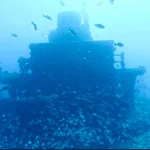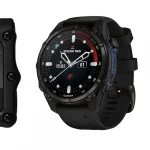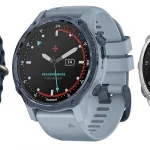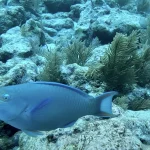Understanding Your Dive Options in Key West
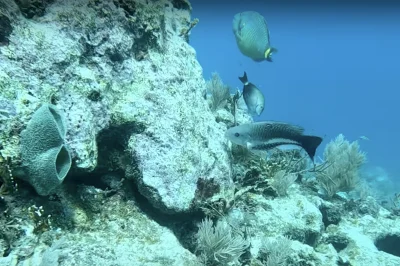
Introduction
Scuba diving is an exhilarating adventure that many people dream of experiencing, but what if you’re not a strong swimmer or can’t swim at all? Key West is a diver’s paradise, known for its beautiful reefs, clear waters, and diverse marine life. This post uncovers whether non-swimmers can partake in the underwater wonders of Key West. By exploring options, misconceptions, and expert advice, you’ll discover how to safely embark on your scuba journey even if swimming isn’t your forte.
Understanding Your Dive Options in Key West
Debunking Myths: Can Non-Swimmers Scuba Dive in Key West?
Many aspiring divers incorrectly believe you must be an expert swimmer to enjoy scuba diving. While some water comfort is necessary, the truth is more encouraging for non-swimmers or those with minimal swimming skills.
Scuba diving differs significantly from swimming, thanks to scuba gear. Key equipment includes:
- Buoyancy Control Devices (BCDs) that help divers maintain neutral buoyancy and float effortlessly.
- Fins that enhance propulsion with simple kicks.
- Weighted belts that are balanced to make movement comfortable instead of strenuous.
Swimming skills are not a prerequisite for scuba diving. Instead, the essential requirement is water confidence—comfort in water and the ability to respond to basic safety protocols. Dive courses often assess basic swimming abilities to ensure safety and confidence, but these requirements are more about comfort than advanced techniques.
Training often starts in confined water environments, focusing on skills like equipment use, safety maneuvers, and underwater navigation. Tips for non-swimmers include:
- Communicate your comfort level with instructors.
- Start with pool sessions and progress to open water.
- Choose shallow, calm dive sites.
- Complete theoretical lessons online to maximise in-water practice.
Swimming proficiency can enhance your scuba experience, but it’s not essential. With appropriate equipment, professional instruction, and progressive training methods, non-swimmers can confidently explore the underwater world of Key West.
Avoiding Common Mistakes for Non-Swimmer Divers
Avoiding Common Mistakes
Non-swimmers face unique challenges when diving, which can lead to common mistakes. Awareness and preparation can prevent these errors.
1. Neglecting Thorough Equipment Checks
Non-swimmers might rush equipment inspections, leading to potential malfunctions.
- Prevention: Perform comprehensive pre-dive safety checks with a buddy.
- Recovery: Signal for help at any issues and ascend slowly.
2. Inadequate Dive Planning
Non-swimmers may misjudge their body’s reaction, leading to discomfort.
- Prevention: Use dive computers to adhere to limits. Plan shallow, short dives initially.
- Recovery: Communicate discomfort early and surface if needed.
3. Rapid or Uncontrolled Ascent and Descent
Non-swimmers may panic, leading to rapid movements and risking decompression sickness.
- Descend slowly and equalise pressure.
- Ascend at a controlled pace, incorporating safety stops.
- If disoriented, pause and use a buddy for reference.
4. Failure to Monitor Air Supply
Ignoring air supply can lead to depletion, causing panic.
- Prevention: Follow the “one-third rule” for air usage and monitor pressure frequently.
- Recovery: Signal for help and ascend calmly if low on air.
5. Poor Buoyancy Control
Non-swimmers may struggle with buoyancy, leading to stability issues.
- Practice controlled breathing for buoyancy.
- Use BCD and weighting systems appropriately.
- Avoid sudden movements that disrupt stability.
By understanding these mistakes and applying practical safety measures, non-swimmers can safely explore the spectacular diving experiences Key West offers.
The Latest Trends: Diving for Everyone in Key West
Key West dive schools offer programs that make underwater exploration accessible to everyone, including non-swimmers.
PADI Discover Scuba Diving does not require swimming tests. It starts with confined water sessions where you learn essential skills under close supervision. Once comfortable, you progress to shallow open water dives.
Snuba® is a hybrid between snorkelling and scuba. It uses a floating raft for air, removing the need for heavy tanks and complex skills. It’s a guided experience suitable for non-swimmers.
These programs prioritize safety and comfort through:
- Guidance: Instructors maintain contact throughout all dive stages.
- Supportive equipment: Buoyancy aids enhance stability and ease.
- Step-by-step progression: Training starts in shallow environments and progresses to open water.
While welcoming to non-swimmers, traditional courses still require swimming ability. However, the new programs reflect an evolution towards inclusive recreational diving, opening the underwater world to all.
Comparing Dive Programs: SNUBA vs. Discover Scuba Diving
Choosing between SNUBA and Discover Scuba Diving depends on comfort, time, and adventure aspirations.
Depth and Experience
SNUBA breathes through a floating tank, limiting depth to about 20-30 feet. Discover Scuba Diving allows deeper, autonomous dives up to 40 feet with full gear.
Training and Safety
- SNUBA: Requires a 15-minute briefing for families seeking quick underwater exploration.
- Discover Scuba Diving: Involves comprehensive instruction and guided dives, building foundational skills.
Accessibility and Practicality
- SNUBA’s floating tank means no heavy tanks, suitable for shallow reefs.
- SNUBA often departs from beaches, while Discover Scuba requires boat trips.
- SNUBA is family-friendly, while Discover Scuba suits adults or older teens.
Time Commitment and Cost
| Aspect | SNUBA | Discover Scuba Diving |
|---|---|---|
| Duration | About 1 hour | 4 to 6 hours |
| Cost | Moderate, typically $100–$150 | Higher due to training and equipment rental |
| Certification | Not required or awarded | Possible temporary certification |
User Experience and Testimonials
- SNUBA is praised for easy access and family orientation, while Discover Scuba is transformative, preparing participants for certified adventures.
Choose based on water comfort, time constraints, and diving goals. SNUBA offers a quick immersion, while Discover Scuba suits those seeking more hands-on learning.
My Favorite Dive Computers
I have compared the 3 top diving computers for each category to help making the right choice easier:
Safety First: Important Considerations for Non-Swimmer Divers
Ensuring safety for non-swimmers involves understanding protocols and choosing alternative diving methods.
Alternative Experiences Like Snuba® offer non-swimmers safe underwater adventures without needing certification. Snuba typically stays shallow, with key safety protocols including:
- Guided Supervision: Low participant-to-guide ratios ensure safety.
- Depth Limits: Designated shallower depths minimise risks.
- Surface Checks: Evaluate conditions to ensure a safe environment.
For non-swimmers considering traditional scuba diving, extra safety measures apply, including:
- Enhanced Buddy System: A 1:1 buddy ensures constant support.
- Shallow Dive Planning: Limiting dives to 20-30 feet reduces hazards.
- Specialised Equipment Checks: Focus on buoyancy and regulator systems.
All underwater excursions emphasize:
- Safety Checks: Comprehensive gear inspections before entry.
- Environmental Etiquette: No-touch rules for corals and marine life.
- Emergency Preparedness: Adhering to ascent rates to avoid decompression sickness.
By adhering to safety guidelines and selecting the appropriate diving experience, non-swimmers can safely explore Key West’s marine life.
Environmental Impact: Responsible Diving in Key West
Non-swimmers can support marine conservation and sustainable diving practices through vital shore-based roles and awareness initiatives.
Education & Outreach
- Volunteer at the Florida Keys Eco-Discovery Center, promoting sustainable practices.
- Distribute materials covering reef-safe sunscreen and buoyancy control.
- Lead awareness campaigns on protecting marine life.
Shore-Based Activities
- Participate in beach cleanups and mangrove restoration.
- Assist with coral restoration by supporting groups like the Coral Restoration Foundation.
- Support event coordination to encourage sustainable practices.
Administrative Roles
- Manage citizen science databases and create conservation content.
- Assist with volunteer coordination at marine protection organisations.
Advocacy and Fundraising
- Advocate for reef-safe regulations and marine protected areas.
- Lead fundraising for coral transplantation and educational campaigns.
Through these roles, non-swimmers become vital stewards of Key West’s marine environment.
Scuba Diving Success Stories from Non-Swimmers
While personal anecdotes of non-swimmers mastering scuba diving in Key West are scarce, the region’s infrastructure supports such journeys. Operators provide beginner-friendly scuba courses focusing on incremental skill-building, helping non-swimmers gain underwater confidence.
Success involves:
- Starting with snorkelling experiences using flotation devices.
- Participating in tailored scuba courses in calm, shallow waters.
- Relying on instructors for safety, technique, and confidence building.
- Using natural buoyancy and dive gear to ease physical demands.
This blend of training, safety protocols, and suitable conditions makes non-swimmer scuba diving achievement in Key West feasible and inspiring.
Sources
- Dressel Divers – Do You Have to Know How to Swim to Scuba Dive?
- Captain Hook’s Dive – Open Water Diver Course in Key West
- Key West Dive Center – Scuba Diving Certifications and Courses
- The Scuba News – Common Scuba Diving Mistakes and How to Avoid Them
- DAN America – 7 Mistakes Divers Make & How to Avoid Them
- DiveBox – 10 Common Mistakes to Avoid While Scuba Diving
- TripAdvisor – Scuba Diving for Non-Swimmers
- Cool Key West – Snuba® Adventures

